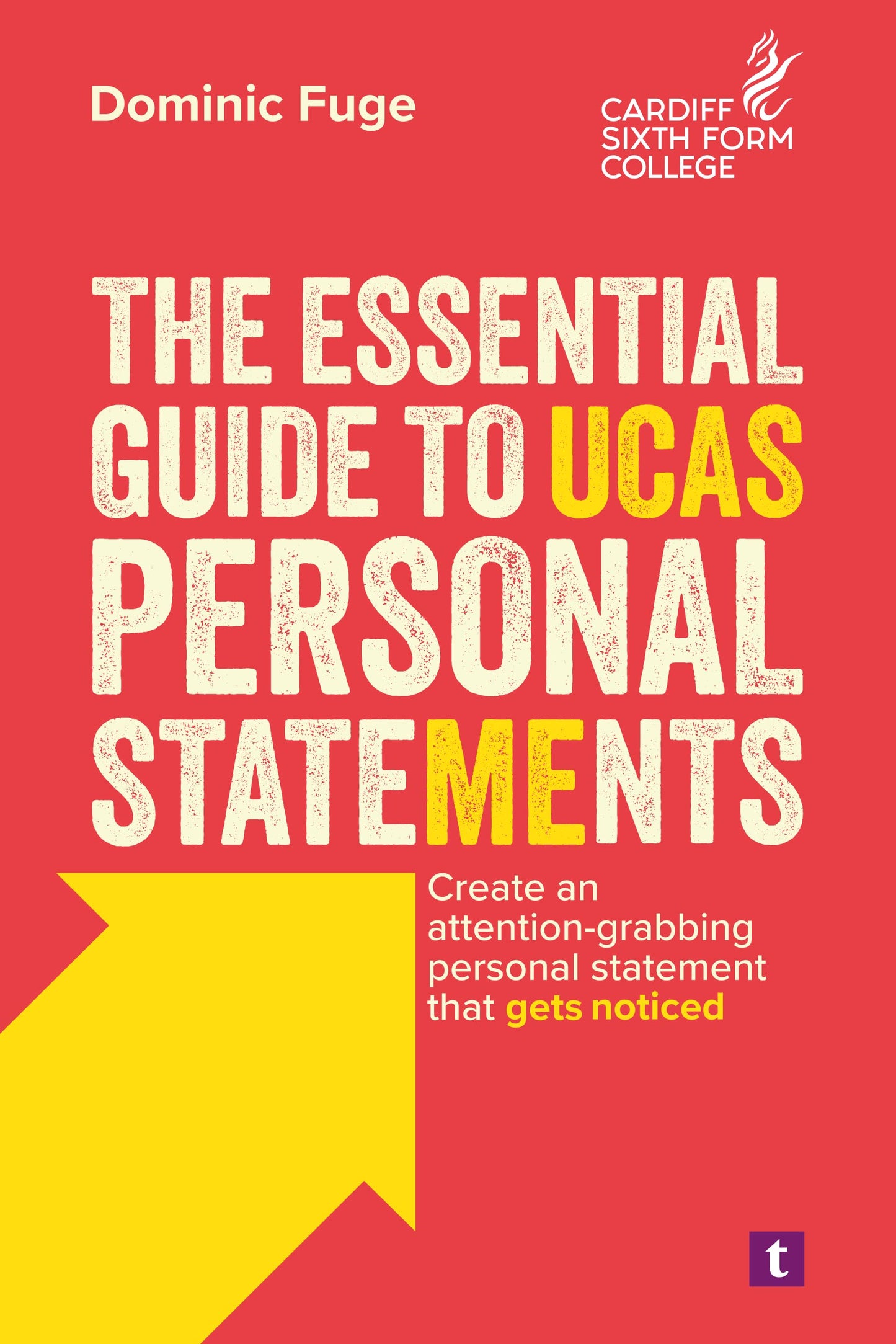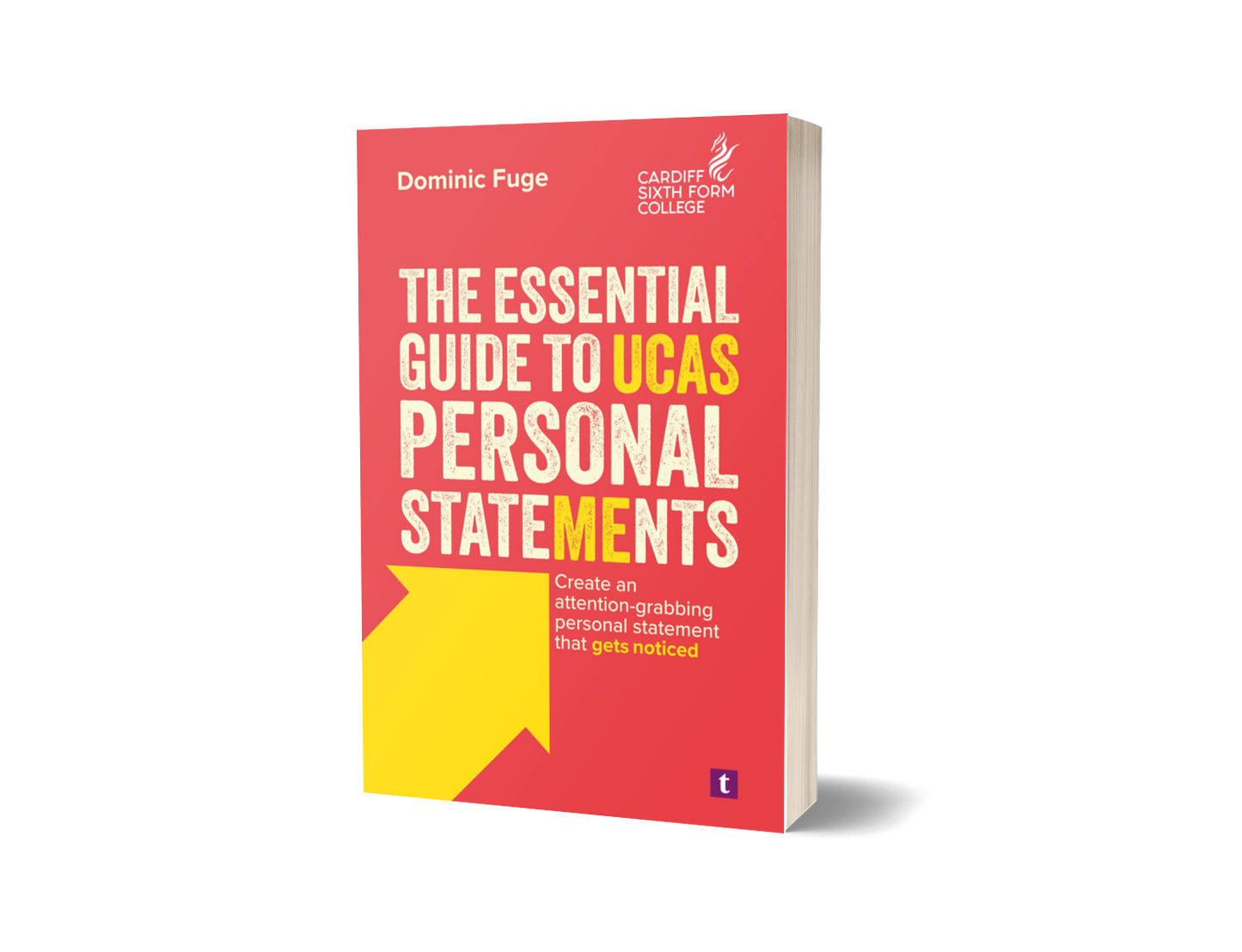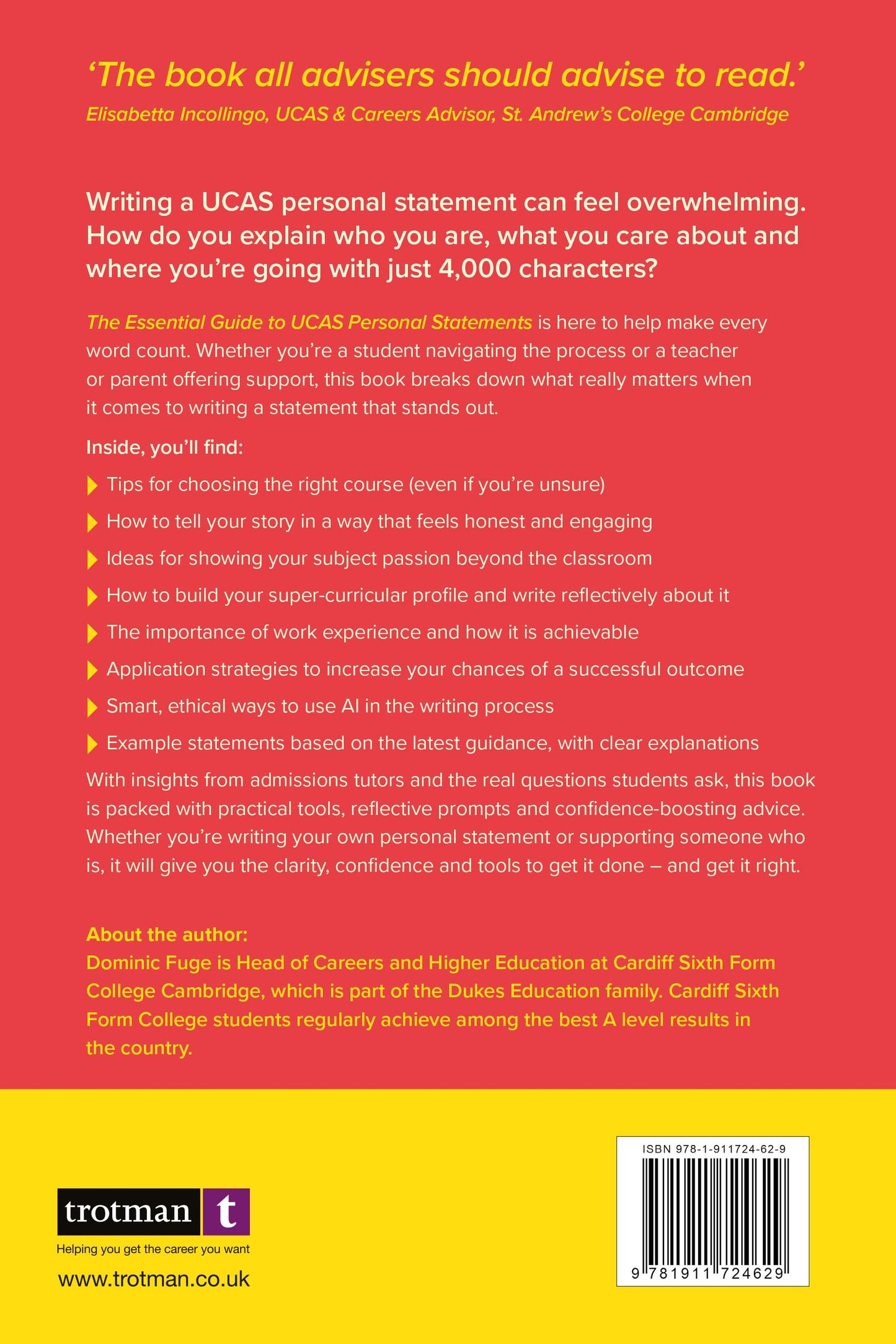
UCAS applications: the essentials
By Dominic Fuge
Why UCAS applications matter more than ever
My name is Dominic Fuge, and I have been commissioned by Trotman to write a new book, due to be published in August 2025, focusing on creating an attention-grabbing UCAS personal statement. Having worked in four different schools across the UK, in both private and public sectors, I have had the opportunity to support what now must be over a thousand students through the application process to secure places at their best-fit universities. Whether you are aiming for Oxbridge, G5, Russell Group or other institutions, having a well written and attention-grabbing personal statement will make all the difference to your UCAS application.
This year, UCAS received 600,660 applications by the equal consideration deadline on 29 January. As we know, especially for competitive university courses, demand for places outstrips supply. Quantitative data, such as previously achieved results and predicted grades, can often be not too dissimilar among applicants. The personal statement provides a unique opportunity for universities to hear directly from the applicant, showcasing their subject passion, academic curiosity and suitability for the course in their own words. The number of applications is on the rise, with UCAS predicting their ‘Journey to a Million’ applicants by the end of this decade. Among the many thousands of applications, the personal statement should be used to make yourself stand out from the competition.
In my book, The Essential Guide to UCAS Personal Statements, I have drawn upon my experiences to produce a comprehensive resource that I hope will provide bespoke support for all readers. Whether you require some guidance on choosing the right course, finding relevant super-curricular activities or perfecting your writing style, this book will help you with these and much more. As UCAS has changed the personal statement requirements for the upcoming 2026 cycle, I have included six model examples of full personal statements written in the new style. These, I believe, will be among the very first examples available of the new-format UCAS personal statement.

My top 10 tips for a standout UCAS application
-
Balance is key – select your five course choices based on your preferred level of risk (i.e. reach, match and safe choices).
-
Check and check again – small mistakes can be common so check through the entire UCAS application multiple times to ensure a smooth submission.
-
Early is helpful – submit your UCAS application as early as possible (preferably before January).
-
Ensure that you have some resources to drawn upon – such as my book The Essential Guide to UCAS Personal Statements!
-
Have a strong super-curricular profile – secure a broad range of super-curricular activities. (I recommend having 15 experiences to choose from and to write about eight of these in your personal statement).
-
Knowledge is power – be well informed about universities that offer courses in your subject area (e.g. attend open days, join webinars, read course pages and reviews).
-
Pay close attention to entry requirements – depending on the course and university, these can vary significantly (e.g. minimum predicted grades, pre-requisite subjects, possible admissions tests). If you are not eligible or miss certain requirements, you may have an unnecessarily unsuccessful application.
-
Produce an attention-grabbing personal statement – this goes without saying! Personal statements separate applicants from the competition and offer admissions tutors the chance to hear about their experiences and subject passion in their own words.
-
The reference matters – in addition to a personal statement, the school (or adviser) will write a 4,000-character reference for each applicant. This reference is important so ensure that there is enough information shared to relevant staff to allow them to produce a high-quality and favourable reference (consider making a ‘crib sheet’).
-
Utilise guidance effectively – opinions do vary and so weigh all these up against your own views and preferences to avoid being sidetracked.




